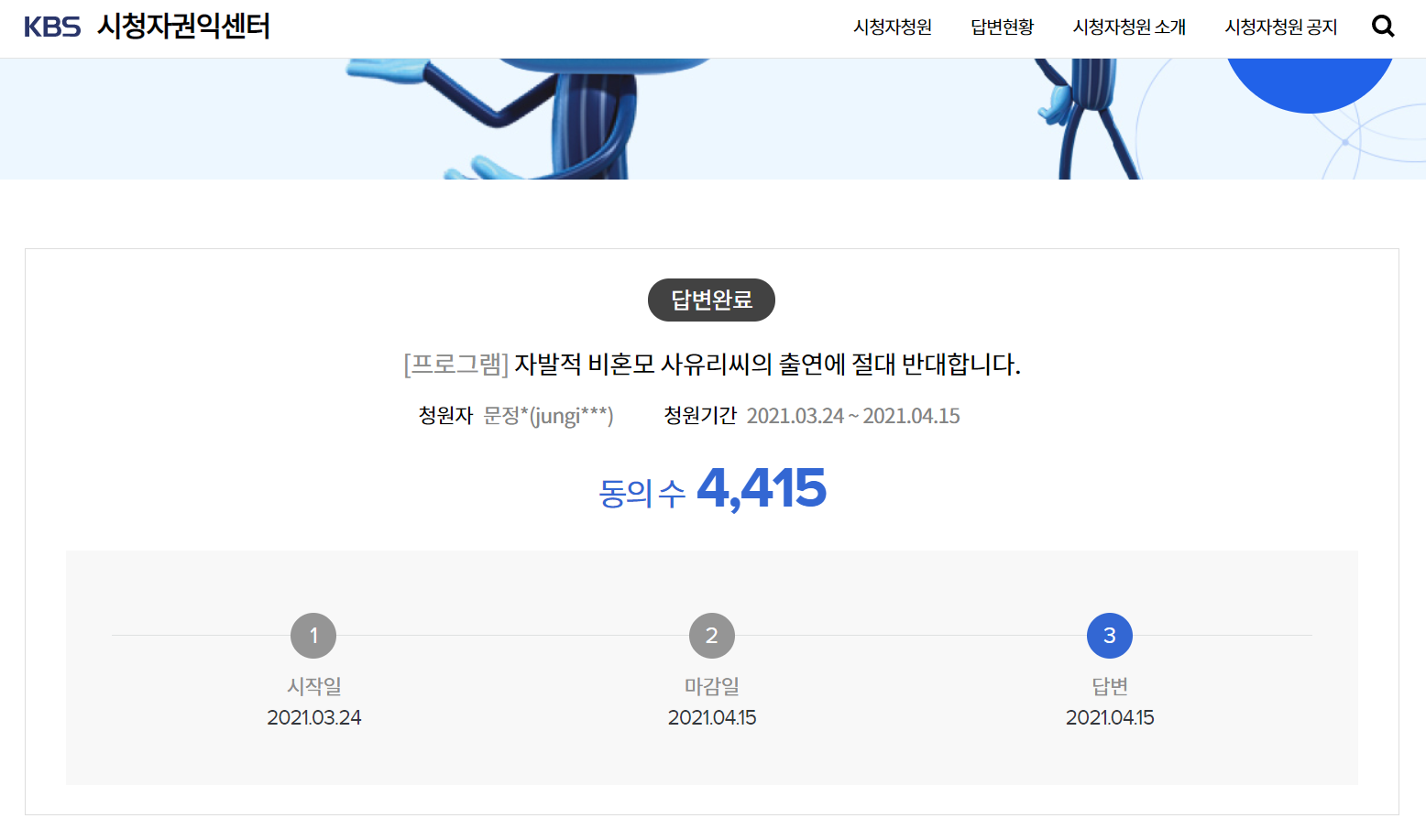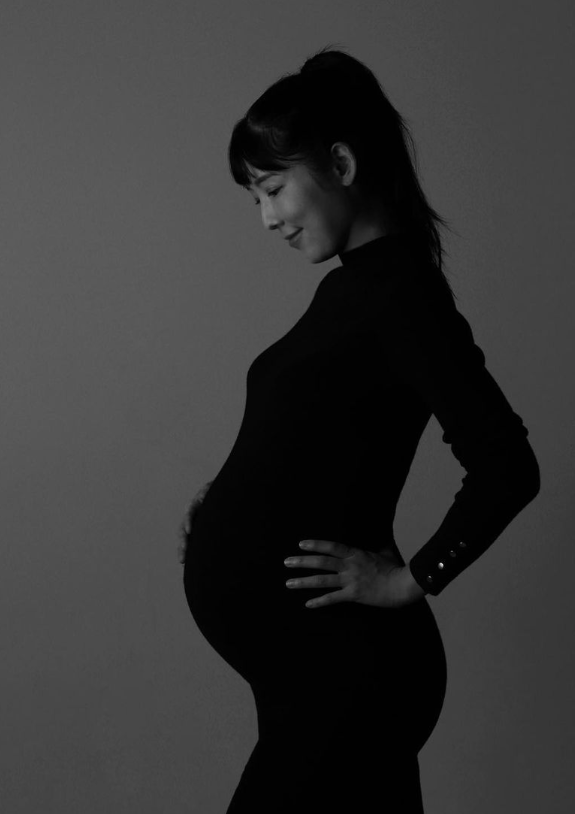"My son doesn't have a father, but he is my precious son,” said Sa-yuri on the KBS program 'Superman is Back'. The controversial unwed single mother conceived her child by sperm donation. In response to her ‘mother by choice’ plan, people petitioned the government via the Cheong Wa Dae website, asking officials to discontinue the public broadcasting of shows that encourage childbirth for unmarried women. The petitioner said, "A public broadcasting station should create an image that presents the right family values, encouraging normal marriage and childbirth." However, I disagree with this opinion, and rather think that these types of families should be normalized in the media for the following three reasons. Mothers by choice is already accepted around the world, it is the media’s social responsibility to educate the public about this option for parenting, and it is their job to promote the normalization of single parent families so that the children do not face discrimination or hardship over their lifetimes.
 |
| ▲ Some people petitioned the government, arguing that the contents may encourage childbirth by unmarried women. (Photo from KBS) |
First, mothers by choice families are already accepted around the world. People who criticize births by choice mom are mostly opposed to the idea of ‘universal childbirth’, arguing births by unwed mothers lead to social chaos. What we often refer to as normal here means the culture or customs that people normally share. Compared to other countries, Koreans tend to consider the ‘choice mom family’ as rare because there are relatively small variations in Korea's family forms. However, when it comes to the international community, the birth rate of single mothers is already high in many countries. For instance in France, about 60% of childbirths are to single parent households, which is higher than any other OECD country in Europe, including Norway, Sweden and Finland. However, in contrast, the ratio of births by single moms in Korea is only 1.4 %. This does not mean the standard for acceptance of a wider definition of the family cannot change. For example, adoptions in Korea are on the rise. According to the Ministry of Health and Welfare, Korea's domestic adoption rate is 32.5%, which is a higher rate than in the past. In addition, as adoption families increase, domestic institutions for adoptions and birthing options such as ‘Baby-boxes’ are expanding. The same system of acceptance for a wider definition of the family could be applied to mothers by choice.
Second, the media should also play a role in raising people's awareness and interest in mothers by choice families. The liberal arts department of Seoul National University says that the media has the ability to help develop our perceptions through the thoughts and images they convey. In other words, by teaching people about different parenting situations, citizens should be able to form their own opinions freely. Therefore, the media should contribute to improving the social awareness of births of single moms by choice by portraying them unfeignedly. However, the petitioner argued that coverage of mothers by choice may normalize this type of family life confusing future generations about the concept of families and ways of giving birth. While I agree this may be the case, a way to help adolescents form more established social values is to expose them to new domestic issues such as this one and provide an environment in which they can build their own values.
 |
| ▲ Recently, Sa-yuri appeared in the KBS TV program 'Superman is Back' as a 'mother by choice.’ (Photo from Sa-yuri instagram) |
Lastly, the media should promote a healthy growth environment for children in mothers by choice families. Children born to a single mother, such as Sa-yuri's son Jen, will experience countless social pressures as they grow up. In the process, they will learn that they were denied social approval because of these limiting perspectives, and were criticized for belonging to a ‘socially inappropriate’ form of family. This will detrimentally impact the child's growth and development more than the concern about the educational aspect of future generations. The media can improve people's perception of social issues such as births by choice moms as was done with the presence of sexual minorities. As a result, the coming-out of sexual minorities has gained strength, and the social perspective towards them has improved significantly. Therefore, the media needs to show mothers by choice families so that children can easily organize their identity in society.
I approve of the media's exposure of the choice mom families because of it is a globally accepted method of childbirth, it is also the media’s responsibility to educate the public about the options available so that people can choose for themselves the type of family they want, and because it protects children of single parents by educating people about mothers by choice families. Public response to single mother’s families is changing for the better. According to a ‘2020 Social Survey’ conducted by the National Statistical Office with about 38,000 citizens, three out of ten Koreans thought they could have children without marriage. However, it is difficult for Koreans to deliver a child without marriage. Under the current bioethics law, 'births by choice’ are not illegal, but the conditions are complicated. In a world that continues to change rapidly, the birth of new cultural concepts is faster than the pace of establishing our values towards them. Of course, there are those who value the existing order more, and others who insist that they be absorbed quickly and demand we develop new policies to adapt accordingly. What do you believe? It may be time you start to think about it.
김민경 dankookherald@gmail.com

![[Campus Magnifier] Let's Surf the Library!](/news/photo/202404/12496_1765_4143.jpg) [Campus Magnifier] Let's Surf the Library!
[Campus Magnifier] Let's Surf the Library!
![[Campus Magnifier] Let's Surf the Library!](/news/thumbnail/202404/12496_1765_4143_v150.jpg)





